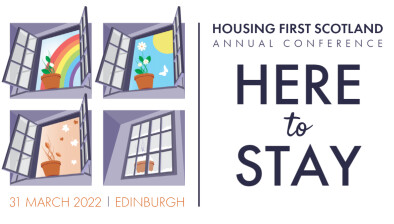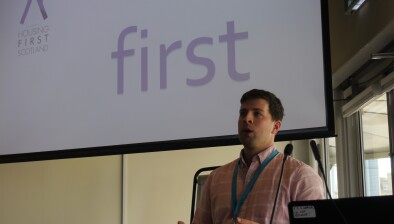Blueprint for joined-up services launched to address multiple disadvantage
The National Learning Set at their first meeting
A major new test of change has been launched to explore how to break down barriers to support faced by tens of thousands of people in Scotland who face multiple disadvantages – with their experience made worse by unequal access to help.
No Wrong Door Scotland will draw on a wide range of professional, academic and lived experience to explore how to better serve people who are dealing simultaneously with issues such as homelessness, poverty, addiction, offending and mental ill health.
Experts in the action learning partnership will address the mismatch of services that focus on a single issue and the overlapping challenges many people face – often as a result of adverse life experiences going back to childhood.
This fragmented model forces people to repeat their story and often relive traumatic events when they go round the different ‘doors’ in the system in search of help.
A National Learning Set of experts who will oversee and contribute to the programme met for the first time in Edinburgh on Monday 16 September.
The two-year programme will wrap a learning cycle around existing services at local level to understand how to deliver No Wrong Door in different geographical and service contexts.
Evidence gathered from the services run by Aberdeen Foyer, Cyrenians, Penumbra and Turning Point Scotland will feed into the National Learning Set, who will develop a National Framework for creating cross-sector and integrated service delivery.
They will share evidence gathered from the test-of-change with the Scottish Government’s Ministerial Oversight Group on Homelessness, to influence a new model of service design. Homeless Network Scotland is the learning partner in No Wrong Door Scotland.
No Wrong Door Scotland is made up of third sector innovators, lived experience experts, policy makers and leading public figures. They include former Scottish Labour leader Kezia Dugdale, now associate director at the Centre for Public Policy at the University of Glasgow; Karyn McCluskey, who helped create the groundbreaking Violence Reduction Unit and is now chief executive of Community Justice Scotland; and leading international scholar on homelessness Professor Suzanne Fitzpatrick.
The partnership builds on findings in the Hard Edges Scotland research co-authored by Prof Fitzpatrick, director of Heriot-Watt University’s Institute for Social Policy, Housing and Equalities Research (I-SPHERE).
That report set out how people who have suffered experiences such as trauma, violence and poverty are much more likely to face multiple and overlapping disadvantage.
But they are also less likely to be able to get the support they need because of services operating in ‘silos’ – fuelling a vicious cycle of disadvantage and inequality.
The Hard Edges research revealed that 5,700 adults experience three ‘core’ forms of severe and multiple disadvantage (homelessness, offending and substance dependency), while 28,800 experience two out of these three.
The four test-of-change services are based in Aberdeen, Dundee, Edinburgh and Fife.
Aberdeen Foyer’s service focuses on upstream work in schools to ensure young people don’t face barriers to support, while Cyrenians’ Hospital In-reach Service supports patients who are at risk of or experiencing homelessness.
Penumbra’s Hope Point is a 24-hour wellbeing centre that supports people in emotional distress. Turning Point Scotland’s Fife Support Service marries a Housing First model with an innovative Whole System Approach to prevent and respond to homelessness.
Maggie Brunjes, chief executive of Homeless Network Scotland, said: “It is well established that the way services are paid for and provided does not work for people who, on top of traumatic life experiences, are also dealing with issues including physical and mental ill health, substance use, homelessness, poverty and offending.
“The current model doesn’t work for anyone. It makes navigating the system difficult for people, it widens disadvantage and inequality, makes key workers’ jobs harder and it mounts pressure on public spend.
“The Scottish Government is already committed to using a No Wrong Door approach across a range of social policy, but we need a shared definition of what this looks like and a national framework to inspire local and national action.
“By using evidence of what is working locally, and what needs to change, we can firmly challenge the status quo and demonstrate that a better way is possible.”









